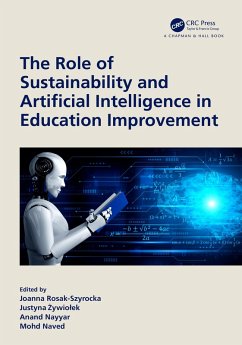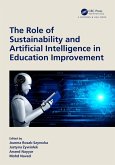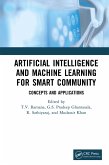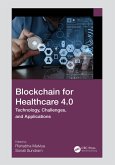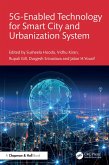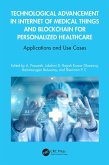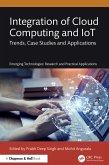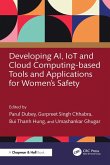The Role of Sustainability and Artificial Intelligence in Education Improvement (eBook, ePUB)
Redaktion: Rosak-Szyrocka, Joanna; Naved, Mohd; Nayyar, Anand; Zywiolek, Justyna
51,95 €
51,95 €
inkl. MwSt.
Sofort per Download lieferbar

26 °P sammeln
51,95 €
Als Download kaufen

51,95 €
inkl. MwSt.
Sofort per Download lieferbar

26 °P sammeln
Jetzt verschenken
Alle Infos zum eBook verschenken
51,95 €
inkl. MwSt.
Sofort per Download lieferbar
Alle Infos zum eBook verschenken

26 °P sammeln
The Role of Sustainability and Artificial Intelligence in Education Improvement (eBook, ePUB)
Redaktion: Rosak-Szyrocka, Joanna; Naved, Mohd; Nayyar, Anand; Zywiolek, Justyna
- Format: ePub
- Merkliste
- Auf die Merkliste
- Bewerten Bewerten
- Teilen
- Produkt teilen
- Produkterinnerung
- Produkterinnerung

Bitte loggen Sie sich zunächst in Ihr Kundenkonto ein oder registrieren Sie sich bei
bücher.de, um das eBook-Abo tolino select nutzen zu können.
Hier können Sie sich einloggen
Hier können Sie sich einloggen
Sie sind bereits eingeloggt. Klicken Sie auf 2. tolino select Abo, um fortzufahren.

Bitte loggen Sie sich zunächst in Ihr Kundenkonto ein oder registrieren Sie sich bei bücher.de, um das eBook-Abo tolino select nutzen zu können.
This book is devoted to the issues faced by universities in the field of distance learning during and after covid as well as in digitalization times. The book devotes a lot of space to the issues of Web 3.0 in University e-learning, industry 4.0, artifical intelligence and digital equity.
- Geräte: eReader
- mit Kopierschutz
- eBook Hilfe
Andere Kunden interessierten sich auch für
![The Role of Sustainability and Artificial Intelligence in Education Improvement (eBook, PDF) The Role of Sustainability and Artificial Intelligence in Education Improvement (eBook, PDF)]() The Role of Sustainability and Artificial Intelligence in Education Improvement (eBook, PDF)51,95 €
The Role of Sustainability and Artificial Intelligence in Education Improvement (eBook, PDF)51,95 €![Artificial Intelligence and Machine Learning for Smart Community (eBook, ePUB) Artificial Intelligence and Machine Learning for Smart Community (eBook, ePUB)]() Artificial Intelligence and Machine Learning for Smart Community (eBook, ePUB)51,95 €
Artificial Intelligence and Machine Learning for Smart Community (eBook, ePUB)51,95 €![Blockchain for Healthcare 4.0 (eBook, ePUB) Blockchain for Healthcare 4.0 (eBook, ePUB)]() Blockchain for Healthcare 4.0 (eBook, ePUB)51,95 €
Blockchain for Healthcare 4.0 (eBook, ePUB)51,95 €![5G Enabled Technology for Smart City and Urbanization System (eBook, ePUB) 5G Enabled Technology for Smart City and Urbanization System (eBook, ePUB)]() 5G Enabled Technology for Smart City and Urbanization System (eBook, ePUB)51,95 €
5G Enabled Technology for Smart City and Urbanization System (eBook, ePUB)51,95 €![Technological Advancement in Internet of Medical Things and Blockchain for Personalized Healthcare (eBook, ePUB) Technological Advancement in Internet of Medical Things and Blockchain for Personalized Healthcare (eBook, ePUB)]() Technological Advancement in Internet of Medical Things and Blockchain for Personalized Healthcare (eBook, ePUB)51,95 €
Technological Advancement in Internet of Medical Things and Blockchain for Personalized Healthcare (eBook, ePUB)51,95 €![Integration of Cloud Computing and IoT (eBook, ePUB) Integration of Cloud Computing and IoT (eBook, ePUB)]() Integration of Cloud Computing and IoT (eBook, ePUB)51,95 €
Integration of Cloud Computing and IoT (eBook, ePUB)51,95 €![Developing AI, IoT and Cloud Computing-based Tools and Applications for Women's Safety (eBook, ePUB) Developing AI, IoT and Cloud Computing-based Tools and Applications for Women's Safety (eBook, ePUB)]() Developing AI, IoT and Cloud Computing-based Tools and Applications for Women's Safety (eBook, ePUB)51,95 €
Developing AI, IoT and Cloud Computing-based Tools and Applications for Women's Safety (eBook, ePUB)51,95 €-
-
-
This book is devoted to the issues faced by universities in the field of distance learning during and after covid as well as in digitalization times. The book devotes a lot of space to the issues of Web 3.0 in University e-learning, industry 4.0, artifical intelligence and digital equity.
Dieser Download kann aus rechtlichen Gründen nur mit Rechnungsadresse in A, B, BG, CY, CZ, D, DK, EW, E, FIN, F, GR, HR, H, IRL, I, LT, L, LR, M, NL, PL, P, R, S, SLO, SK ausgeliefert werden.
Produktdetails
- Produktdetails
- Verlag: Taylor & Francis
- Seitenzahl: 264
- Erscheinungstermin: 21. November 2023
- Englisch
- ISBN-13: 9781000997828
- Artikelnr.: 69093282
- Verlag: Taylor & Francis
- Seitenzahl: 264
- Erscheinungstermin: 21. November 2023
- Englisch
- ISBN-13: 9781000997828
- Artikelnr.: 69093282
- Herstellerkennzeichnung Die Herstellerinformationen sind derzeit nicht verfügbar.
Dr. Joanna Rosak-Szyrocka Assistant Professor, Erasmus+ coordinator at the Faculty of Management, Czestochowa University of Technology, Poland. She specialized in the fields of digitalization, industry 5.0, quality 4.0, education, IoT, AI, and quality management. She completed a research internship at the University of ¿ilina, Slovakia, and at Silesia University of Technology, Poland. Participant in multiple Erasmus+ teacher mobility programs: Italy, UK, Slovenia, Hungary, Czech Republic, Slovakia, and France. She held a series of lectures on Quality Management at universities in countries such as Great Britain, the Czech Republic, Slovakia, Slovenia, France, Hungary, and Italy. She cooperates with many universities both in the country (University of Szczecin, Rzeszów University of Technology, Silesian University of Technology), and abroad (including the University of Tabuk, Saudi Arabia; Széchenyi István University, Hungary; University Faisalabad, Pakistan; University of Humanities, China, University of Technology Sydney, Australia; Bucharest University of Economic Studies, Romania; and Federal University Dutse, Nigeria). Editorial Board: Plos One Journal, PeerJ Journal, and IJQR Journal (ISSN 1800-6450). Reviewer Board: IJERPH MdPI (ISSN 1660-4601) IF: 4.614. Associate Editor for Cogent Business and Management, Taylor & Francis (ISSN: 2331-1975). Guest Editor of: Resources MdPI, IJERPH MdPI, Energies MdPI, Sustainability MdPI, Springer Discover Sustainability Journal, Frontiers Journal, and Elsevier Measurement Journal. Reviewer for a number of prestigious journals like IEEE, Elsevier, MdPI, Frontiers, Sage, and Emerald. Justyna ¿ywiöek is an Assistant Professor, Department of Production Engineering and Safety, Faculty of Management, Cz¿stochowa University of Technology. Anand Nayyar is an Assistant Professor, School of Computer Science, Duy Tan University, Da Nang, Viet Nam. He is currently working in wireless sensor networks, MANETS, swarm intelligence, cloud computing, internet of things, blockchain, machine learning, deep learning, cyber security, network simulation, and wireless communications. He has published more than 350 research papers in various national and international conferences and journals. Dr. Mohd Naved is a distinguished Associate Professor with an impressive career spanning over 16 years in the fields of Business Analytics, Data Science, and Artificial Intelligence. As an educator, Dr. Naved has consistently demonstrated a commitment to the highest standards of teaching and mentoring, ensuring that his students receive an education that is both cutting-edge and grounded in real-world experience. His dedication to helping students achieve their full potential extends beyond the classroom, as he has been an active participant in the university's Mentor-Mentee Program, providing guidance and support to over 150 undergraduate and postgraduate students. In addition to his teaching prowess, Dr. Naved has excelled in the areas of education management, research, and curriculum development.
1. Hybrid Learning in HEI - Pathway, Implementation and Challenges. 2. The Psychological Effects of COVID-19 on College Students Due to Digital Divide via Online Education. 3. Investigation of Student's Intention and Related Determinants for E-Learning Continuance in Education after COVID-19. 4. Education 4.0 And Web 3.0 Technologies Application for Enhancement of Distance Learning Management Systems in Post COVID-19 Era. 5. Undergraduates Perception Towards E-Learning During the Pandemic: Evidence from State Universities in Sri Lanka. 6. Online Teaching Sustainability and Strategies During the COVID-19 Epidemic. 7. Inclusiveness and Sustainability of Teaching and Learning Technologies Amidst the COVID-19 Pandemic in Higher Education: An Indian Perspective. 8. Framework to Integrate Education 4.0 to Enhance E-Learning Model for Industry 4.0 And Society 5.0. 9. Towards Digital Equity: Reimagining Digital Learning Through the Lens of Bloom's Taxonomy. 10. The Empirical Investigation of Artificial intelligence Towards Enhancing the Learner-Instructor Interaction Towards Online Learning using Multiple Regression Analysis. 11. Effect of Digital Competence and Pedagogies on Gender Orientation of Pedagogue: A Quantitative Study with Regression Modeling of Higher Education Institutions. 12. AI in Sustainable Education: Benefits, Applications, Framework and Potential Barriers.
1. Hybrid Learning in HEI - Pathway, Implementation and Challenges. 2. The Psychological Effects of COVID-19 on College Students Due to Digital Divide via Online Education. 3. Investigation of Student's Intention and Related Determinants for E-Learning Continuance in Education after COVID-19. 4. Education 4.0 And Web 3.0 Technologies Application for Enhancement of Distance Learning Management Systems in Post COVID-19 Era. 5. Undergraduates Perception Towards E-Learning During the Pandemic: Evidence from State Universities in Sri Lanka. 6. Online Teaching Sustainability and Strategies During the COVID-19 Epidemic. 7. Inclusiveness and Sustainability of Teaching and Learning Technologies Amidst the COVID-19 Pandemic in Higher Education: An Indian Perspective. 8. Framework to Integrate Education 4.0 to Enhance E-Learning Model for Industry 4.0 And Society 5.0. 9. Towards Digital Equity: Reimagining Digital Learning Through the Lens of Bloom's Taxonomy. 10. The Empirical Investigation of Artificial intelligence Towards Enhancing the Learner-Instructor Interaction Towards Online Learning using Multiple Regression Analysis. 11. Effect of Digital Competence and Pedagogies on Gender Orientation of Pedagogue: A Quantitative Study with Regression Modeling of Higher Education Institutions. 12. AI in Sustainable Education: Benefits, Applications, Framework and Potential Barriers.
